By Maya Piedra, Global Press Mexico.
Eleno Ulloa endured ridicule, rejection, drug and alcohol addiction, and two deportations from the United States. Today, he is his family’s breadwinner and, with his recycling business, a sign of hope for many in Nayarit.
PASO DE LAS PALMAS, MEXICO — Eleno Ulloa inherited his interest in recycling from his maternal grandmother. Together, they would rummage through the garbage dumps in his hometown of Paso de las Palmas, Nayarit. At the age of 5, a terrible accident befell Ulloa when he tried to recover a doll from the summit of a mountain of garbage, not knowing that a fire burned inside. His cousin happened to hear his screams and found him, but not before he was left with serious burns on his feet.
That incident did not deter him from hunting down discoveries in the heaps of trash. “I showered my sister with toys. One time, I found a stuffed teddy bear this tall,” Ulloa says, holding his hand roughly a meter above the ground.
Para leer este artículo en Español, vea Su condena en la cárcel le dio un vuelco a su vida: hoy es dueño de su propia empresa de reciclaje.
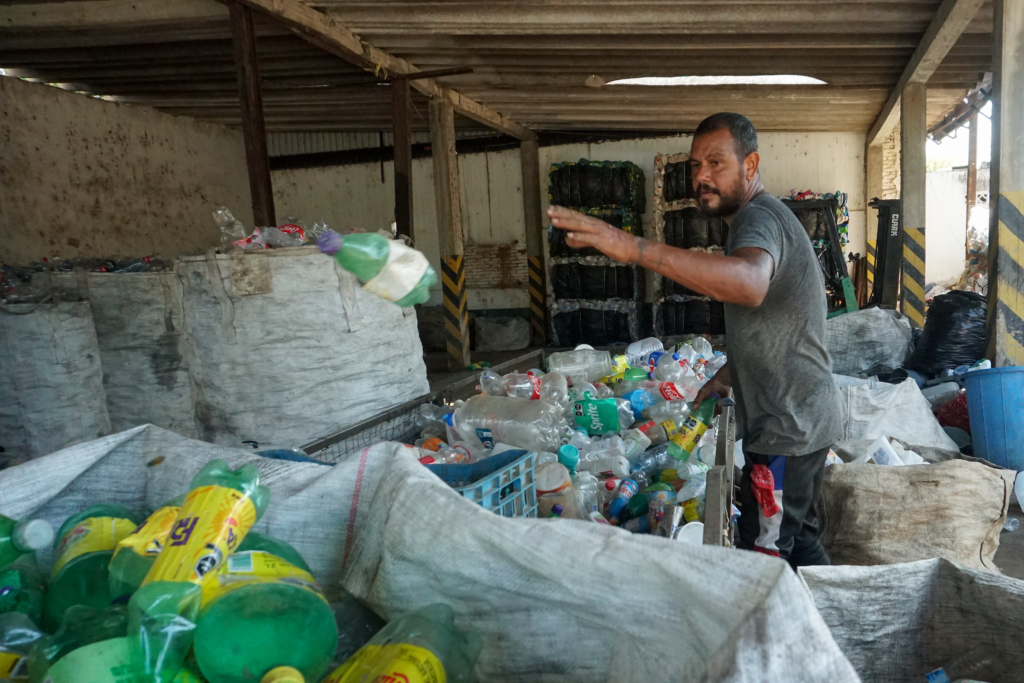
With a speech condition that affects his ability to express himself fluently, and after suffering through two deportations from the United States, Ulloa currently runs one of the few recycling businesses in Nayarit, a state with one of the lowest recycling rates in Mexico, according to a report from Asociación Nacional de Industrias del Plástico, an association that promotes the plastics industry.
He got his start in 2018, driving a car through the streets of the town, announcing that he was purchasing plastic. “People thought I was crazy to go out collecting plastic,” he says. After making his announcements every day for three months, he succeeded in getting people to begin picking plastic items off the streets and selling them.
Mexico is one of Latin America’s top importers of plastic, mostly from the US and China, and these imports doubled between 2015 and 2021. This was partially due to a 2018 decision by China — historically one of the world’s top destinations for solid waste — to ban the import of 24 types of solid waste, some of which are plastics.
In 2019, Mexico only recycled 50% of the 4.5 million tons of plastic it produced that year.
Now, Ulloa’s company employs three people and collects approximately 4.5 tons of plastic per week from 40 towns and villages along the coast of Nayarit and sells them to a recycling plant in nearby Guadalajara.
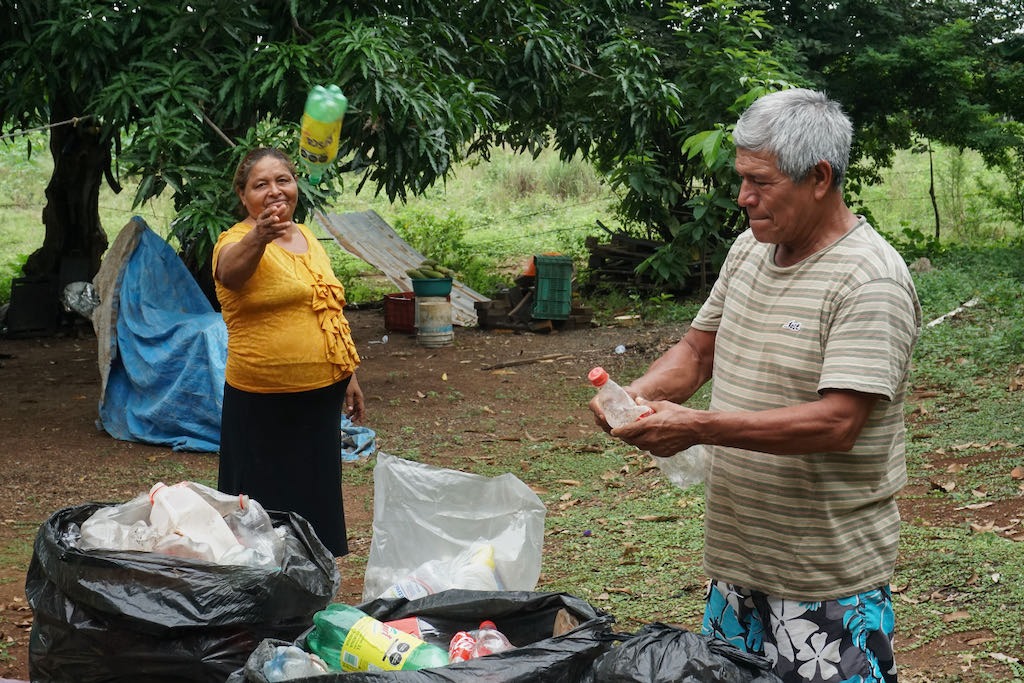
But the journey he took to get to this point was not easy.
At the age of 6, Ulloa crossed the border into the US at Tijuana with his mother and two brothers. His father, Mario Ulloa, was waiting for them in California, where they established their new home. After four years there, his father moved the family to the state of Oregon to provide the children with a better future. “The poverty we had [in Mexico] was really tough,” Mario Ulloa says. “The little we were able to do was because we left.”
Due to his speech condition, Eleno Ulloa experienced bullying, including from his own family, he says. During his secondary education in Oregon, the situation became unbearable. He says even his teachers made fun of him. “Not even one of them gave me a hand or said, ‘Hey! Don’t do that to Eleno!’” he says. “They laughed. And the students got up the nerve to laugh, too, making me feel like the smallest person in the world.”
So, one day, as summer vacation ended, he decided to leave school. He was 16 years old.
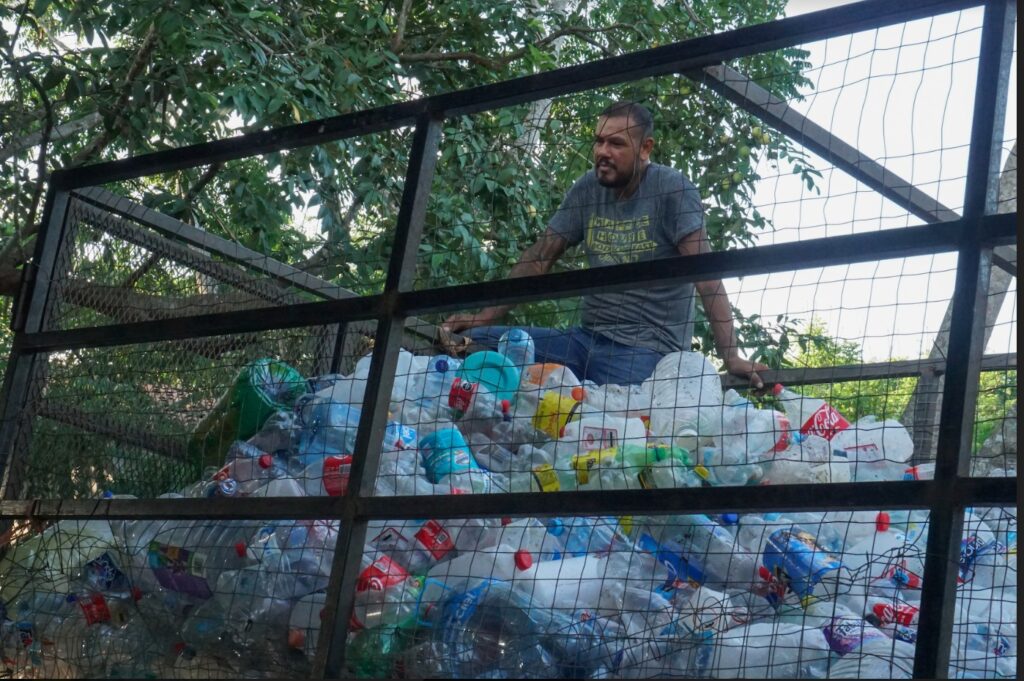
At 20, someone suggested that he sell drugs, and he took it up. “The money appealed to me, but more than anything, what appealed to me was that people don’t make fun of you when you have money,” he says. This was a time when he had his first girlfriend and was surrounded by friends.
Everything went well for two years, until the police arrested him. The judge sentenced him to 16 months in prison.
While serving his sentence, Ulloa began to take rehabilitation classes, which gave him the motivation to speak. “‘They’re going to laugh at my stuttering,’ I thought.” Instead, his fellow inmates and the teacher encouraged him. “I made lots of friends, and nobody called me a stutterer. My life changed there.”
When he completed his sentence, there was a way for him to stay in the US, but he needed a sponsor. He thought that person would be his brother, but when he refused, Ulloa was deported.
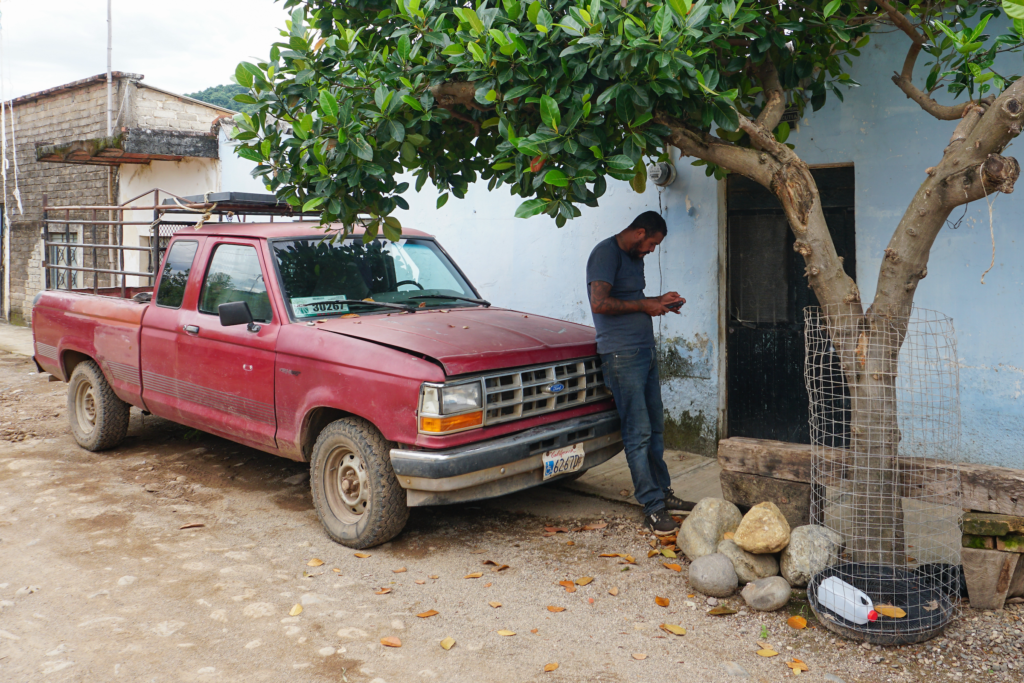
When he arrived in Mexico at the age of 25, nobody wanted to employ him. They called him “norteñito” (“little northerner”) and judged him for his tattoos. The result was that, after eight months submerged in drugs and alcohol, Ulloa crossed the border back into the US. And two years after that, he was sent to prison again, this time with a sentence of two years and seven months because he had been residing in the country illegally and was a repeat offender. Four months shy of completing this sentence, Ulloa was deported again.
His return to Mexico brought the same difficulties. When he ran into problems assimilating in the town, Ulloa’s parents returned to Mexico to be with him, leaving behind their other children and almost their entire extended family in the US.
Ulloa eventually found a job at a recycling plant in Paso de las Palmas. One year later, he decided to start his own business. And now he sorts, compacts and sells the plastic collected from the streets of Nayarit.
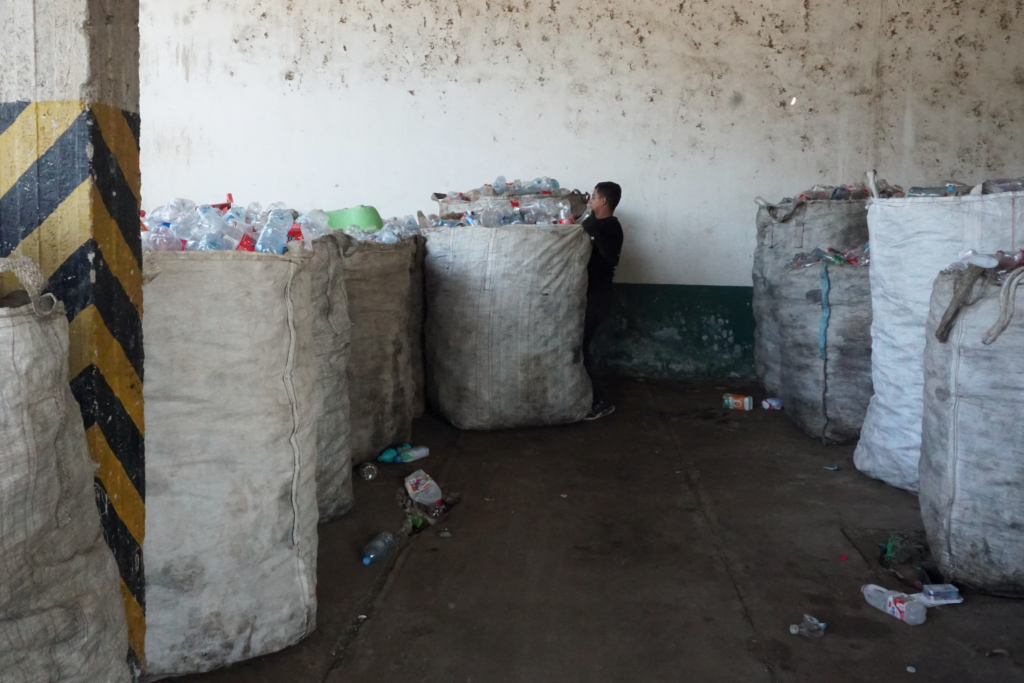
Families find hope for survival
It has been five years since María Guadalupe Duarte Godínez and Demetrio Aréchiga Alcántar started collecting plastic and selling it to Ulloa. “No one was collecting it. They threw it in the creek, in the irrigation canal. Or they burned it,” Aréchiga says. “Before, you would see pastures of plastic bleaching in the sun.”
Aréchiga says their interest in plastic arose one day when they found themselves without any money, “not even for a gram of salt.” Ulloa arrived that day. He took the plastic they had collected and paid them on the spot.
The couple has since installed two plastic containers in their town so people can deposit plastic. They collect between 100 and 150 kilograms (220-330 pounds) every 10 days.
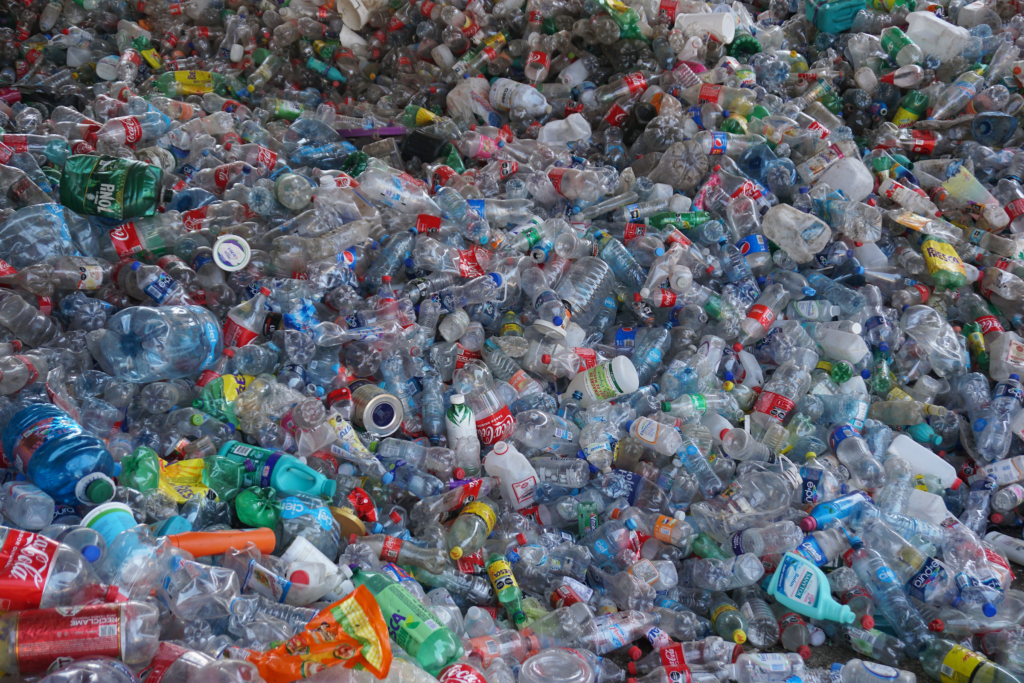
Duarte says that she has 12 people in the community who, instead of burning their plastic, as had been the custom, set it aside and call her to give it to her. “It helps us to keep the farmland clean, which in turn keeps the roads clean,” she says.
Bersain López, originally from Chiapas, makes rounds on his tricycle on the streets of Las Varas. He can collect up to 100 kilograms (220 pounds) of plastic per day, and always sells it to Ulloa.
With the money, López pays rent and buys food. He says it is more profitable to collect plastic than to do agricultural work. “The bosses on the farms, sometimes I [do] the work and they tell me, ‘Wait five days.’ And you have to wait for them to pay you,” he says. “If I take plastic to [Ulloa], he pays me right then.” And if López needs money, Ulloa lends it to him.
With his business, Ulloa has purchased two plots of land and manages all of his family’s expenses. But more than that, in an area where people used to burn their plastic waste or dump it in the streets and rivers of Nayarit, he feels proud to have effected a change in the culture.
This story was originally published by Global Press Journal. Global Press is an award-winning international news publication with more than 40 independent news bureaus across Africa, Asia and Latin America.
But what happens to all the plastic that goes to Guadalajara?I live near there in winter.because the water is non potable, everyone drinks bottled water and soda. It’s a huge problem. Glad for Ulloa, but what is made from the plastic?
That is an excellent question, and one that I have wondered about myself. I will pass it along to Maya, the author, and if she doesn’t know, we will investigate ourselves. Thanks for reading!!
Inspiring! Wonderful story!
Thank you, Toni! We are so happy to have you as a reader!